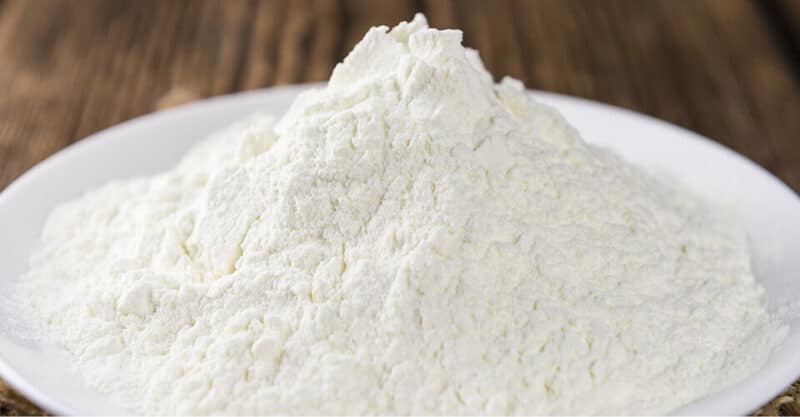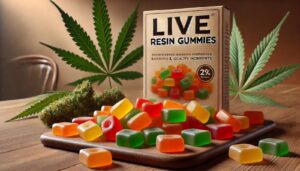In recent years, the cannabis industry has witnessed a surge of interest in delta 8 THC isolate, a compound with psychoactive effects similar to its more well-known cousin, delta 9 THC. However, as with many cannabis-derived products, the legality of delta 8 THC isolate remains a complex and often confusing issue. In this blog post, we’ll delve into the legal landscape surrounding delta 8 THC isolate, exploring its status under federal law, state regulations, and the implications for consumers and businesses alike.
Federal Law and the Farm Bill
At the federal level, the legality of delta 8 THC isolate hinges largely on the provisions of the Agriculture Improvement Act of 2018, commonly known as the Farm Bill. This landmark legislation legalized the cultivation, production, and sale of hemp and hemp-derived products, defining hemp as cannabis plants and derivatives containing no more than 0.3% delta 9 THC by dry weight. While the Farm Bill did not explicitly address delta 8 THC, some argue that its inclusion under the definition of hemp extends to delta 8 THC isolate, as it is derived from hemp-derived CBD.
DEA’s Interim Final Rule
Despite the apparent ambiguity of the Farm Bill, the legality of delta 8 THC isolate was called into question in 2020 when the Drug Enforcement Administration (DEA) issued an Interim Final Rule (IFR) regarding the scheduling of hemp extracts. In the IFR, the DEA asserted that “synthetically derived tetrahydrocannabinols remain schedule I controlled substances,” effectively classifying all forms of THC, including delta 8 THC isolate, as illegal under federal law.
Industry Response and Legal Challenges
The DEA’s IFR sparked outcry and confusion within the hemp and cannabis industries, with many businesses and advocacy groups challenging the agency’s interpretation of the law. Critics argued that the DEA’s broad definition of “synthetically derived” was overly broad and inconsistent with the intent of the Farm Bill, which sought to distinguish between hemp-derived and marijuana-derived cannabinoids. Several lawsuits were filed against the DEA in response to the IFR, alleging that it exceeded the agency’s authority and violated the Administrative Procedure Act.
State Regulations and Variability
In addition to federal law, the legality of delta 8 THC isolate is also subject to regulation at the state level, where laws and policies vary widely. While some states have explicitly legalized or decriminalized delta 8 THC isolate, others have taken a more restrictive approach, imposing outright bans or subjecting it to stringent regulations. In states where delta 8 THC isolate is legal, consumers may still face restrictions on its sale, possession, and use, depending on local ordinances and licensing requirements.
Consumer Considerations and Risks
For consumers, navigating the legal landscape of delta 8 THC isolate requires careful consideration and awareness of the potential risks and consequences. While the compound may be legal in some jurisdictions, purchasing and using delta 8 THC isolate still carries certain risks, including potential legal repercussions and concerns about product quality and safety. Because delta 8 THC isolate is not subject to the same regulatory oversight as pharmaceutical drugs, consumers should exercise caution when purchasing products and ensure they are sourced from reputable suppliers who adhere to strict quality control standards.
Business Opportunities and Challenges
Despite the legal uncertainty surrounding delta 8 THC isolate, the compound has become increasingly popular among consumers seeking an alternative to traditional cannabis products. For businesses operating in the hemp and cannabis industries, delta 8 THC isolate represents a lucrative opportunity for innovation and growth. However, navigating the regulatory landscape can be challenging, with businesses facing potential legal risks and compliance requirements that vary from state to state.
Looking to the Future
As the legal and regulatory landscape surrounding delta 8 THC isolate continues to evolve, it is clear that the compound will remain a topic of debate and discussion within the cannabis community. While some advocates argue for clearer regulations and guidelines to ensure consumer safety and product quality, others advocate for the full legalization of all forms of THC, including delta 8 THC isolate. Whatever the future may hold, one thing is certain: the legal status of delta 8 THC isolate will continue to shape the trajectory of the cannabis industry for years to come.
For wholesale buyers eager to capitalize on the evolving cannabis market, Nano Hemp Tech Labs offers a diverse range of premium delta 8 THC isolate products. Our commitment to quality and compliance ensures a seamless partnership experience. Contact us via our contact form to explore wholesale opportunities and revolutionize your inventory today.
Reference:
- Chan-Hosokawa, A., Nguyễn, L., Lattanzio, N., & Adams, W. (2021). Emergence of delta-8 tetrahydrocannabinol in duid investigation casework: method development, validation and application. Journal of Analytical Toxicology, 46(1), 1-9. https://doi.org/10.1093/jat/bkab029
- Grotenhermen, F., Russo, E., & Zuardi, A. (2017). Even high doses of oral cannabidiol do not cause thc-like effects in humans: comment on merrick et al. cannabis and cannabinoid research 2016;1(1):102–112; doi: 10.1089/can.2015.0004. Cannabis and Cannabinoid Research, 2(1), 1-4. https://doi.org/10.1089/can.2016.0036
- Hazekamp, A., Choi, Y., & Verpoorte, R. (2004). Quantitative analysis of cannabinoids from cannabis sativa using 1h-nmr. Chemical and Pharmaceutical Bulletin, 52(6), 718-721. https://doi.org/10.1248/cpb.52.718
- Janeczek, A., Zawadzki, M., Szpot, P., & Niedźwiedź, A. (2018). Marijuana intoxication in a cat. Acta Veterinaria Scandinavica, 60(1). https://doi.org/10.1186/s13028-018-0398-0
- Meehan-Atrash, J. and Rahman, I. (2021). Novel δ8-tetrahydrocannabinol vaporizers contain unlabeled adulterants, unintended byproducts of chemical synthesis, and heavy metals. Chemical Research in Toxicology, 35(1), 73-76. https://doi.org/10.1021/acs.chemrestox.1c00388
- Meola, S., Tearney, C., Haas, S., Hackett, T., & Mazzaferro, E. (2012). Evaluation of trends in marijuana toxicosis in dogs living in a state with legalized medical marijuana: 125 dogs (2005–2010). Journal of Veterinary Emergency and Critical Care, 22(6), 690-696. https://doi.org/10.1111/j.1476-4431.2012.00818.x







